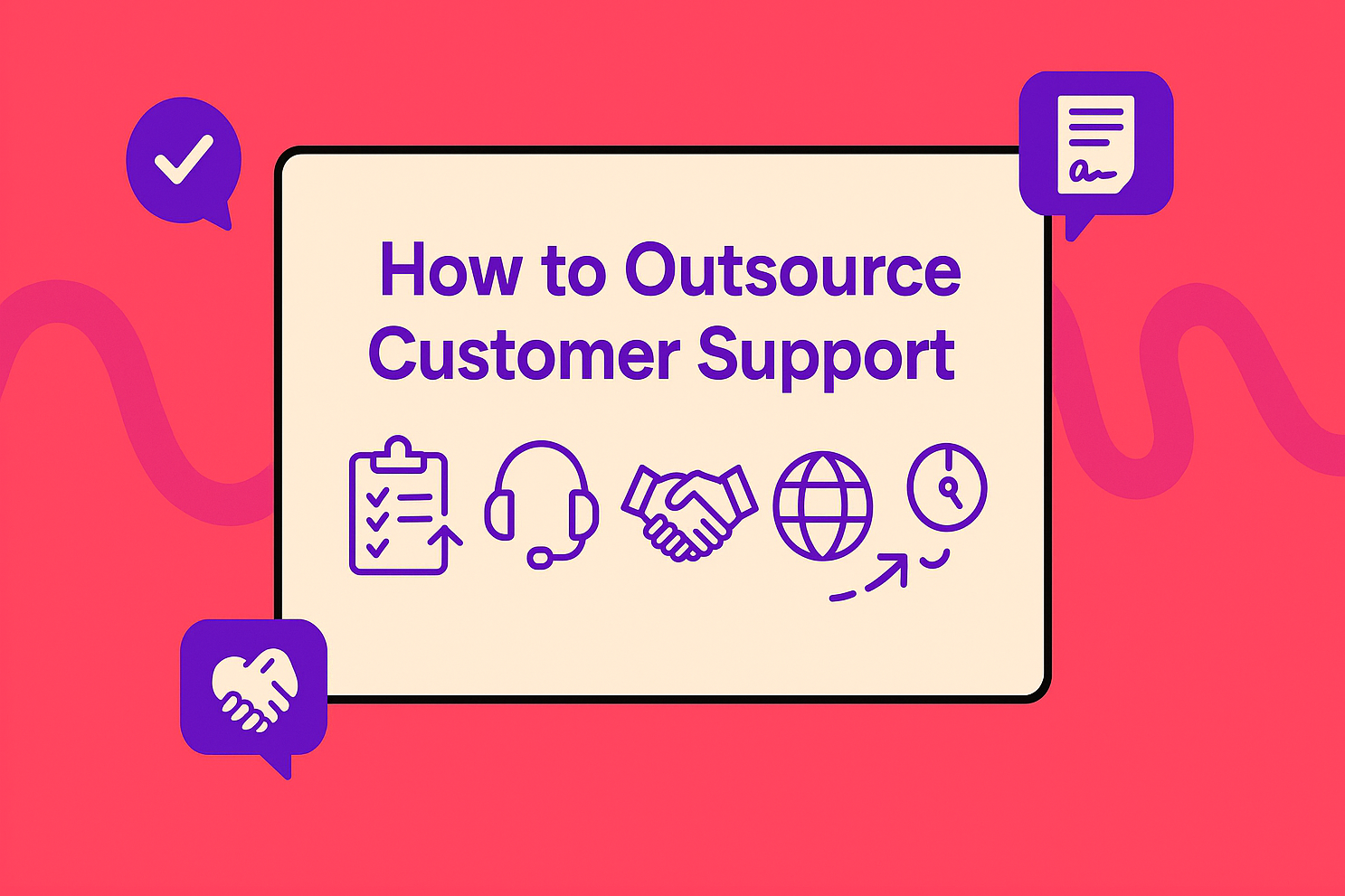
Customer support outsourcing is a proactive step that helps.
When implemented effectively, it can improve service delivery across all customer support channels. At the same time, outsourcing also allows you to maintain control over your brand’s voice and quality of service.
In this guide, we'll discuss how to outsource customer support efficiently without compromising on customer experiences.
Customer support outsourcing refers to the assignment of service-related tasks to external teams. These tasks include writing emails, making phone calls, responding on social media channels, and providing live chat services. Outsourced teams handle these support tasks, which allows businesses to focus on their core operations.
This helps companies to:
Since customer service significantly impacts sales, outsourcing it to a provider can lead to increased sales and higher customer satisfaction. It also helps in driving repeat business without burdening internal resources.
Follow this step-by-step guide to determine what type of outsourcing provider your business needs.
Your search should start with clear goals that you have for outsourcing. Consider whether the focus is on cutting costs, managing peak-season volume, or just improving customer service and support.
Once the goal is clear, define in detail what you will need from outsourcing. Then, identify which customer service channels, such as email, phone, chat, or social media, will be supported by customer service providers.
Furthermore;
You should set clear standards for service quality and customer satisfaction scores that you are aiming to reach with the help of outsourced customer service. Aligning these factors with business goals ensures that the outsourcing effort supports effective customer services that can directly impact sales and long-term retention.
Before moving forward, decide which customer support operations you are planning to outsource. You could choose to go for full support or can only outsource certain segments based on;
Some businesses also outsource according to their language and time zone needs.
Beginning with a smaller test project is common. This helps assess the quality without compromising customer satisfaction or loyalty. A gradual approach ensures that service delivery standards are met. Additionally, it helps build confidence in the outsourced team's ability to manage customer needs.
Selecting the right provider is the most crucial part of outsourcing customer support effectively. The outsourcing provider that you choose will impact both your brand's image and operating costs. Prioritize outsourcing providers that have;
Moreover, they should also be able to personalize their approach to match your brand's tone and values. Look for;
A reliable outsourcing company will effectively manage customer complaints, coordinate shipping, and deliver reliable support and assistance. This will help drive customer loyalty and satisfaction.
Setting clear guidelines from the beginning will help you build an effective outsourcing partnership. To have proper and direct contact with the external team, choose communication tools like email, Slack, and dashboards.
Manage complex customer issues directly and establish proper escalation paths. Develop Service Level Agreements (SLAs);
Define customer satisfaction benchmarks that reflect your goals. These agreements are crucial for delivering exceptional customer service and ensuring that support and assistance meet or exceed expectations. With clear accountability, businesses can maintain service consistency and strengthen customer loyalty while managing external service agents effectively.
Customer service providers must have the right tools to deliver strong customer support. Make sure they have access to the product or service guides, internal FAQs, approved scripts, and clear branding rules. This ensures that they represent your voice accurately in every customer interaction. Training should highlight;
By showing empathy to customers, you not only prevent poor customer service but also foster trust. When agents follow your standards, they make satisfied customers, reduce churn, and support lasting customer loyalty.
Businesses should monitor the performance of the outsourced team. Outsourcing customer service ensures success. Make sure you monitor key metrics like;
Moreover, set up weekly or monthly reviews and keep a steady feedback loop with your in-house team. Conduct random spot checks, and consider using mystery shoppers to assess real-world service quality.
When you see positive results from customer service outsourcing, you should consider expanding. You can also add customer service channels or start offering multilingual support. This can help you enter the global market. Also, you should regularly compare the performance and cost-effectiveness of your in-house and outsourced teams. Use ongoing feedback and analytics to;
Encourage repeat purchases and word-of-mouth marketing by refining every touchpoint. Remember, outsourcing isn’t just a one-time fix. The most effective customer service programs are continuously being improved to ensure that they meet the evolving customer expectations and maintain brand loyalty.
To sum up, knowing how to outsource customer support effectively is crucial. An outsourcing partner that is right for your business will ensure that you have strong customer retention, efficient handling of customer inquiries, and smooth service delivery. With clear goals, consistent quality checks, and the right tools, outsourcing can lead to;
This approach not only helps you secure repeat business but also fosters sales through customer advocates, making your support function a key driver of growth.
Cut costs, not quality. Outsource your customer support to Chat Pandas and let them handle the rest. Let's start today.